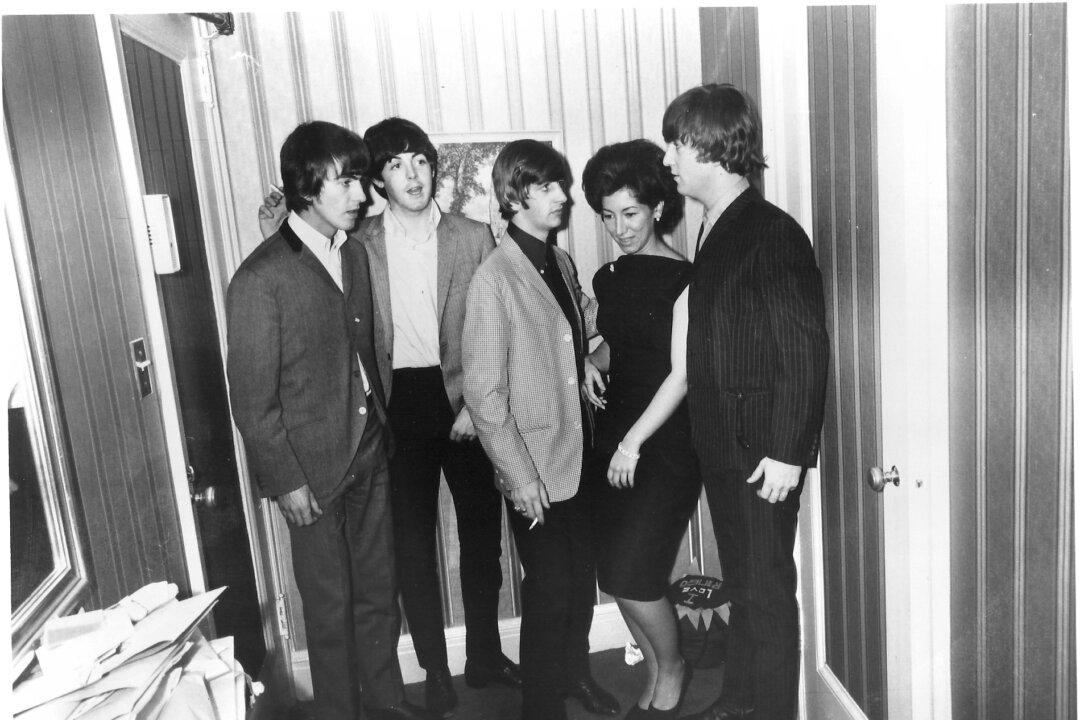NEW YORK—New Yorkers who watched television in the ‘40s probably remember Bernadette Castro as the child star in sofa sleeper commercial for her father’s company. Others may remember Castro as the former Parks Commissioner of New York State. But most people won’t remember Castro as the ardent pop singer, who once turned down a contract with Motown Records.
The politician who helped pave the way for public-private partnerships in the New York parks system, was once a romantic, wistful youth who dropped out of Florida University after her sophomore year to pursue a singing career.
It was a surprise, even at the time. Castro was a dedicated broadcast journalism student. She carried a 16 mm camera by her side at all times, pulling over on highways to document car accidents, always swallowing her emotions for the news.
But Castro was also a girl who sang with gusto, who yearned to be in the limelight.
She left school to perform and record several singles in the 1960’s for Colpix Records, Columbia Pictures’ recording subsidiary. Her single, “His Lips Get in the Way,” hit the national charts.
And then the fortuitous moment came. Berry Gordy, the founder of Motown, invited her to his studio for an audition.
Castro went to see him in Detroit in 1963, when the city’s economy was thriving from the fruits of the auto industry, when Gordy was a producer who had not yet reached his peak.
Her father and manager waited in the hallway as Castro sat alone with Gordy in his office.
She recalled starring in awe at an immense oil painting hanging behind his desk, when he told her that he was going to play a record.
It was a catchy song. She liked it. He told her the girl group was his latest contract. Once the girls would graduate from high school, he would make them stars. The girls were to become The Supremes, and the song playing was “Baby Love.”
After the small talk, it was time for Castro to ’show him what she’s got.' Gordy led her to the in-house studio, slid onto a seat, and began to play the piano.
“Sing along with this, can you sing along?” Castro recalled him saying.
She doesn’t remember what song it was but she has never forgotten the words he uttered next.
Gordy told her that she had soul.
“It was such a big compliment,” Castro said. “It was all I needed to feel validated.”
“We could really do something, this is going to be great.” Gordy’s words rung in her mind after she left the studio. But a rendering of the reality she would soon have to face stopped her in her tracks.
It was a moment of coming of age, a moment when an adult makes the responsible decision rather than the beautiful one.
She realized that what she wanted most dearly in life was antithetical to her impending fame. Castro wanted to have a family one day, to watch her children grow up.
Her manager was furious. How could one say no to Berry Gordy?
But it was out of respect to Gordy that she decided to decline the chance for fame.
“You just can’t cut the cord in the middle with a famous producer,” Castro said. “You don’t fool around with Berry Gordy.”
She came to terms with the fact that she couldn’t do everything. But that didn’t mean she couldn’t do almost everything that interested her.
She went back to school. After receiving a Master’s from the University of Florida, she worked in the advertising department of her father’s company, Castro Convertibles. After her four children grew up, she took over as the CEO.
Her father, Bernard Castro, passed away in 1991. The recession of the early 90’s forced the company to start cutting some of their showrooms.
“He always knew I had an interest in public service,” she said. “He blessed me in his final years to give it a shot.”
Castro eventually sold the company to Krause Furniture in 1993.
Tenure with Governor Pataki
Castro went on become the Parks Commissioner under Governor George Pataki, from 1995 to 2006.
Critics may remember Pataki for a funds distribution scandal, supporters remember his tax cuts, but Castro was one of the few who got to know him as the man who liked to make people smile.
She said he is a man who never brings bad news; instead, his press secretary Zenia Mucha did it for him.
“She was a busy woman. If she called you, you were in trouble,” Castro said, laughing. “Oh I love her, we still keep in touch today.”
Perhaps most importantly, she said about Pataki, was that he is a man who genuinely cared about the protection of parks.
At the end of his 12-year tenure, they had preserved over one million acres of land.
Legacy of Castro Convertibles
Castro’s father, an ambitious Sicilian-native, was the inventor of the modern sofa bed.
Bernard had emigrated to the U.S. in 1919. With just $400 in his account, he started Castro Convertibles in 1931.
Little would he know, his four-year-old daughter’s accidental discovery would make him a millionaire.
He knew that his sofa beds were easier to open than other sofa beds. That had been the point of his product. But he didn’t know how easy it actually was.
One Sunday afternoon, he returned to his modest home near Throgs Neck Bridge and found Castro playing on the convertible bed.
He asked his wife why she had opened the bed. She said she hadn’t.
His eyes froze on his daughter. The motto of the company formed in his mind: It’s so easy, even a child can do it.
It was 1948, and Bernard thought, it must be shown on television. He was going to create a commercial, he would hire a child actress to open the sofa.
But his wife pointed out it would be unfair if it would not be their own child. This was Castro’s discovery. And Castro was no “shrinking violet.”
So Castro, at age four, acted in her first commercial.
She had her hair curled and a new night gown. But it wasn’t enough. Castro refused to let the cameras roll until she would have her nails painted red too.
The commercial was picked up by Dorothy Kilgallen’s column. Kilgallen claimed the commercial was a farce, that there was no way a child could open a sofa bed, the girl must have been a little person, and the red nail polish was the proof.
“My father was just happy that she even mentioned him in the column,” Castro recalled.
The commercial ran over 40,000 times starting in 1948.
“At the time New York only had two channels, and only one commercial had a child in it,” she said.
Castro made appearances in parodies of the commercial for shows such as “The Tonight Show Starring Johnny Carson” and “The Jackie Gleason Show.”
Today, whenever she sees a time-honored New Yorker, Castro tells them who she was and they gasp.
In 2010, Castro and her children decided to buy back the company. It had been too much a part of their history. The sofa bed could almost be seen as the crest of the Castro family.
“I really wanted to return to the private sector and felt that my strength was there,” she said. “I wanted to go back to the business that my parents built.”
She re-launched Castro Convertibles with one of their most popular products, the convertible ottoman.
“You look at this ottoman and you think it just looks like a fashionable ottoman with a plate on it,” she said.
It did.
“But just look, ‘wha-la,’ you lift off the cover and it turns into a bed,” she said. “No more worrying about deflating inflatable beds. The ottoman is small so you won’t have to worry about space.”
At age 69, Castro is still demonstrating how easy it is to convert a Castro Convertible product into a bed.
“I’m in a good place with no real regrets,” she said. “It’s enough to know that if I had really wanted to [be a part of Motown] I could have done it.”
“But here I am happy with my four children and grandchildren,” she said.
Bernadette Castro Singing ‘His Lips Get in the Way’
Bernadette Castro Converts the Sofa Bed at Age 4
This Is New York is a weekly column that features narrative profiles of inspiring individuals in New York City, from all walks of life. Read a new profile every Saturday afternoon online, and every Thursday in print.
Follow @ameliapang29 on Twitter.




